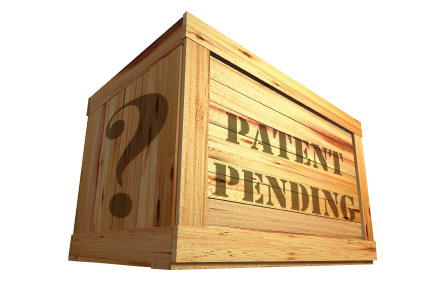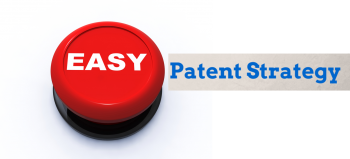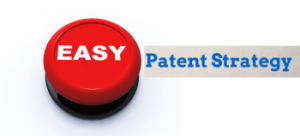 Patent professionals can do a better job providing patentability review, or "opinion," services for innovators. As most readers would recognize, a patentability review assesses whether the invention to be claimed will meet the legal requirements for patentability. In the US, this entails an assessment by a patent attorney, which can be based on a formal or informal search, whether the client’s invention is novel and non-obvious over the prior art. The rules by which a patent attorney makes a determination of patentability are well-established and would not be considered controversial by most experienced practitioners. Nonetheless, as an IP Strategist who works exclusively with clients engaged in developing and delivering meaningful innovations to consumers, I know that these entrenched patentability assessment practices deserve retooling for those clients who can be classified as "innovators." To this end, I believe that the way the patent
Patent professionals can do a better job providing patentability review, or "opinion," services for innovators. As most readers would recognize, a patentability review assesses whether the invention to be claimed will meet the legal requirements for patentability. In the US, this entails an assessment by a patent attorney, which can be based on a formal or informal search, whether the client’s invention is novel and non-obvious over the prior art. The rules by which a patent attorney makes a determination of patentability are well-established and would not be considered controversial by most experienced practitioners. Nonetheless, as an IP Strategist who works exclusively with clients engaged in developing and delivering meaningful innovations to consumers, I know that these entrenched patentability assessment practices deserve retooling for those clients who can be classified as "innovators." To this end, I believe that the way the patent
Patentability Reviews for Innovations
Startup Patent Strategy: US Patent Non-Publication

Need Broad Patents Fast? Try This.
 That title got your attention, didn’t it? It was meant to. After another successful round of patent application examinations for several clients in the last year, I thought others would like access to my proven patent acquisition methodology. Certainly, there’s a lot more than I can include in this post, and what is presented here should be considered to be only a high level introduction to my process. Moreover, every client requires focused attention to generate the desired patent protection, and not every business scenario mandates this comprehensive approach. But, for those situations where company leadership determines that strong patent protection is a key to achieving the desired business outcomes from investment in innovative products and technology, this methodology is not only recommended, it is required for success. Put simply, if you do the hard work
That title got your attention, didn’t it? It was meant to. After another successful round of patent application examinations for several clients in the last year, I thought others would like access to my proven patent acquisition methodology. Certainly, there’s a lot more than I can include in this post, and what is presented here should be considered to be only a high level introduction to my process. Moreover, every client requires focused attention to generate the desired patent protection, and not every business scenario mandates this comprehensive approach. But, for those situations where company leadership determines that strong patent protection is a key to achieving the desired business outcomes from investment in innovative products and technology, this methodology is not only recommended, it is required for success. Put simply, if you do the hard work
Value-Enhancing Patent Prosecution Strategies (Part 1 of 3)
 In my role as the IP Strategist for a number of companies that do not employ in-house patent counsel, I am charged with making sure that my clients’ patenting efforts are in tune with their desired business outcomes. This means that instead of focusing on the drafting and prosecuting of patent applications that form the basis of most patent attorneys’ practices, I work at the front end of the patenting process to design patent strategies that will enhance my clients’ business value first and foremost. When alignment is created with business goals, subsequent patenting efforts will necessarily result in protection that matters to the value of the company. In this regard, I have a number of tools in my “Patent Strategy Toolbox” that I deploy regularly when developing patent prosecution recommendations. Notably, when I mention these tools to new clients, I
In my role as the IP Strategist for a number of companies that do not employ in-house patent counsel, I am charged with making sure that my clients’ patenting efforts are in tune with their desired business outcomes. This means that instead of focusing on the drafting and prosecuting of patent applications that form the basis of most patent attorneys’ practices, I work at the front end of the patenting process to design patent strategies that will enhance my clients’ business value first and foremost. When alignment is created with business goals, subsequent patenting efforts will necessarily result in protection that matters to the value of the company. In this regard, I have a number of tools in my “Patent Strategy Toolbox” that I deploy regularly when developing patent prosecution recommendations. Notably, when I mention these tools to new clients, I
IP Strategy is Increasing Focus at Innovative Companies: Here’s Why
After more than 8 years, I can report that IP Strategy is an increasing focus at innovative companies, and there is a solid reason why this is so. By way of background, for many years, I have been part of a small minority of IP experts who advocate that companies desiring to maximize the value of their IP investments re-think the way they seek and obtain patents. In short, I and my IP Strategist peers urge companies to wrest control of their “IP destiny” from their legal service providers who have traditionally been seen as the primary drivers of the patenting process for their clients.

Of course, readers
Product Companies Must Modify Patent Strategy When Adopting Innovation as Business Model
 I recently finished an IP Strategy engagement with major consumer products corporation, where I interfaced with the head of New Product Development and Innovation Strategy. This company is embarking on a major shift in the way it brings products to market. In short, the company is transitioning from one that introduces new products with incremental improvements into the market on a regular basis, to one that focuses more on innovation. For this client, this strategy will mean that a significant portion of its product development efforts will be focused on solving unmet and identifying emerging customer needs, with the ultimate goal of introducing truly innovative consumer products that will be successful in the marketplace.
I am sure that my client's new products will be found to be highly desirable to their consumers: the
I recently finished an IP Strategy engagement with major consumer products corporation, where I interfaced with the head of New Product Development and Innovation Strategy. This company is embarking on a major shift in the way it brings products to market. In short, the company is transitioning from one that introduces new products with incremental improvements into the market on a regular basis, to one that focuses more on innovation. For this client, this strategy will mean that a significant portion of its product development efforts will be focused on solving unmet and identifying emerging customer needs, with the ultimate goal of introducing truly innovative consumer products that will be successful in the marketplace.
I am sure that my client's new products will be found to be highly desirable to their consumers: the
10 Key IP Strategy Insights for Innovative Companies for 2016 and Beyond
As 2016 begins, I am entering my 8th year(!) of writing about IP strategy insights from a business value creation perspective, both here on my IPMaximizerBlog.com and, more recently, on LinkedIn.
While there were quite a few IP lawyers writing blogs in 2008, no one else was then writing about IP strategy.

Today, there are even more IP lawyers writing blogs about IP law, but still almost none writing that address IP strategy topics that are meaningful outside of the IP monetization and large IP
Why Business Fails to Generate Patenting Strategies that Protect Innovation Value & How to Make It Easier
Business leaders often find the decision of whether to obtain patent protection for their company's innovations to be difficult. Of course, conventional wisdom, not to mention legions of patent attorneys, assert that patents are "important" to "protect" one's business. In my experience, however, few business people can clearly articulate specifically why and to what extent patents can and will create real financial value for their business.

This means that, in many companies, the decision to obtain (or not obtain) patent protection in a particular situation comes down to evaluation of anecdotal information from which a "business judgment" is formulated. In my view, when based only on anecdotes, as opposed to real
Companies Create Risk by Leaving IP Strategy Out of Innovation
I recently had to give bad news to a new client, the CEO of a successful global electronic hardware company. This CEO hired me earlier this year to help ensure that his company's upcoming innovations, which were the product of a several year turnaround program, were protected from competitive knock-offs. I have completed a couple of projects for the company to date, and he now wanted to discuss IP protection for a new product for the European market that would serve as a platform for later product spin-offs both there and in the US.

This new product incorporated a number of highly innovative features and almost certainly could generate broad patent
Failure to Generate REAL Patent Protection: Keurig’s Story (Part 2)
In Part 1 of this "Failure to Create REAL Patent Value: Keurig's Story," I asserted that the company's current business woes can be directly attributable to a flawed patent strategy. To summarize, as a result of the Keurig Green Mountain's failure to obtain durable patent rights on its coffee pods, there has been a proliferation of lower cost generic pods. Because these generic pods sell for about 40% less than the branded "K-Cup" pods, Keurig Green Mountain has and will continue to lose substantial revenue due to this increased competition, even while its coffee maker innovation remains wildly popular with consumers. The question then becomes how did the company fail to fully capitalize on the value its disruptive innovation created in the marketplace? One can see what went wrong with Keurig Green Mountain's patent strategy by starting with the litigation record in which the Read More


